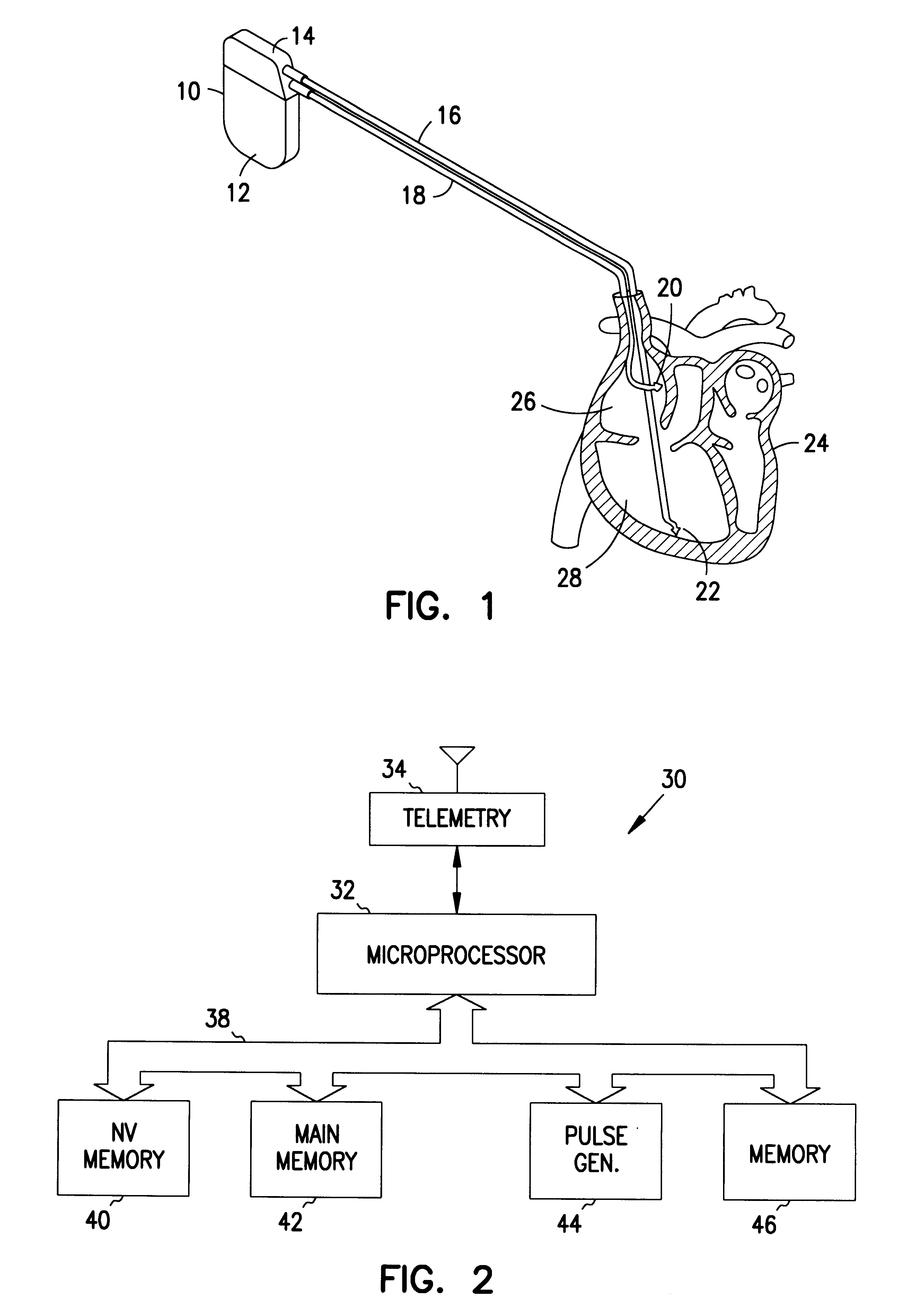Stackable microelectronic components with self-addressing scheme
a stackable, microelectronic technology, applied in the direction of heart stimulators, instruments, therapy, etc., can solve the problems of limited memory, increased cost of customized alternatives, and already dense electronic circuitry in the case of most implantable cardiac stimulators
- Summary
- Abstract
- Description
- Claims
- Application Information
AI Technical Summary
Problems solved by technology
Method used
Image
Examples
Embodiment Construction
Turning now to the drawings and referring initially to FIG. 1, one embodiment of a cardiac stimulator is illustrated and generally designated by a reference numeral 10. The cardiac stimulator 10 includes stackable microelectronic components having a self addressing scheme that will be described in detail herein. The illustrated cardiac stimulator 10 is a dual chamber pacemaker, but it should be understood that other types of cardiac stimulators, such as defibrillators and single chamber pacemakers, as well as a variety of other products, may also benefit from these teachings.
The case of the cardiac stimulator 10 includes a can 12 and a header 14. The cardiac stimulator 10 may be implantable or non-implantable. If implantable, the can 12 and the header 14 are hermetically sealed to prevent bodily fluids from damaging the internal circuitry of the pacemaker 10. Typically, the can 12 is made of titanium, and the header 14 is made of polyethylene.
Because the illustrated cardiac stimulat...
PUM
 Login to View More
Login to View More Abstract
Description
Claims
Application Information
 Login to View More
Login to View More - R&D
- Intellectual Property
- Life Sciences
- Materials
- Tech Scout
- Unparalleled Data Quality
- Higher Quality Content
- 60% Fewer Hallucinations
Browse by: Latest US Patents, China's latest patents, Technical Efficacy Thesaurus, Application Domain, Technology Topic, Popular Technical Reports.
© 2025 PatSnap. All rights reserved.Legal|Privacy policy|Modern Slavery Act Transparency Statement|Sitemap|About US| Contact US: help@patsnap.com



